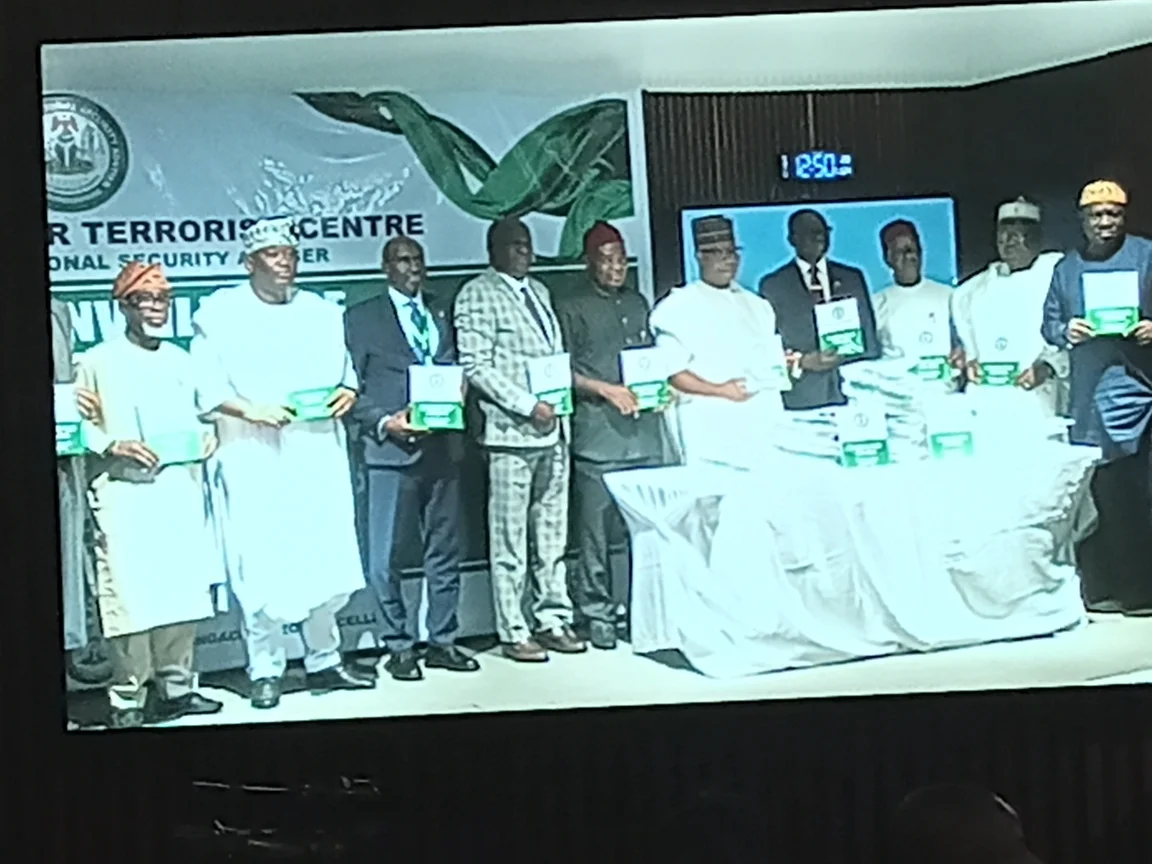President of the Senate, Sen. Godswill Akpabio, on Monday unveiled the National Counter-Terrorism Centre (NCTC) Strategic Plan 2025–2030, describing it as a landmark initiative in Nigeria’s drive to strengthen national security.
Speaking at the Abuja event, which was attended by senior government officials, security chiefs, diplomats, private-sector leaders, and development partners, Akpabio said the five-year plan was timely in light of the government’s determination to defeat terrorism and build a resilient and peaceful nation.
“This strategy provides a disciplined framework to transform institutions, integrate advanced technology, improve intelligence coordination and foster stronger collaboration across government and society,” he said, stressing the need for sustained investment in technology, training, and personnel.
The Senate President highlighted the detrimental impact of insecurity on national development, including disruptions to education, investor flight, and weakened communities. He outlined three key pillars of the strategic plan:
Strengthening national resilience through early warning systems and community intelligence.
Integrating modern technology, such as drones and cybersecurity platforms.
Enhancing regional and international cooperation to tackle transnational threats.
Akpabio also emphasised the role of private-sector partnerships in financing security efforts and supporting victims of terrorism, assuring that the National Assembly would enforce transparency and closely monitor implementation.
“The Strategic Plan is a national promise that Nigeria will not yield to fear or insecurity. Citizens, traditional rulers, civil society, youth groups, the private sector, and international allies must unite to safeguard the nation,” he added.
Representing the National Security Adviser, Malam Nuhu Ribadu, Maj.-Gen. Adamu Laka, NCTC National Coordinator, said the plan offers a research-driven roadmap built on lessons from over two decades of counter-insurgency operations. He highlighted social drivers of violent extremism, including unemployment, drug abuse, and lack of opportunities, and cited initiatives such as the “Seeds of Hope” programme, aimed at rehabilitating victims of terrorism through agriculture and livelihoods.
Dr Usman Hussain, representing the African Union Commission (AUC), praised Nigeria’s leadership in counter-terrorism and the NCTC’s transformation into a regional centre of excellence. He announced forthcoming AU technical missions and peer-review exercises to strengthen Nigeria’s counter-terrorism capacity.
Development partners, diplomats, security chiefs, private-sector leaders, and NGOs pledged support, describing the strategic plan as vital for national stability and economic growth.
The event concluded with the formal unveiling of the Strategic Plan 2025–2030, marking a new chapter in Nigeria’s coordinated fight against terrorism and violent extremism.





